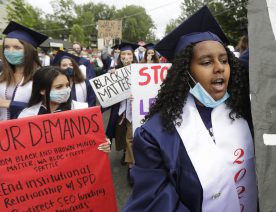
July 14, 2025
A new AP-NORC survey, conducted using the AmeriSpeak Teen Panel—a nationally representative panel of U.S. teenagers aged 13 to 17—explores how teenagers view their future, highlighting both their aspirations and concerns. As teens think about what they want out of life, 8 in 10 feel that it’s important to be able to pursue what they enjoy, have a good standard of living, and have a successful career. Seven in 10 prioritize owning a home and 6 in 10 say the same about graduating from college. About half think raising a family, contributing to their community, and traveling are important life goals.
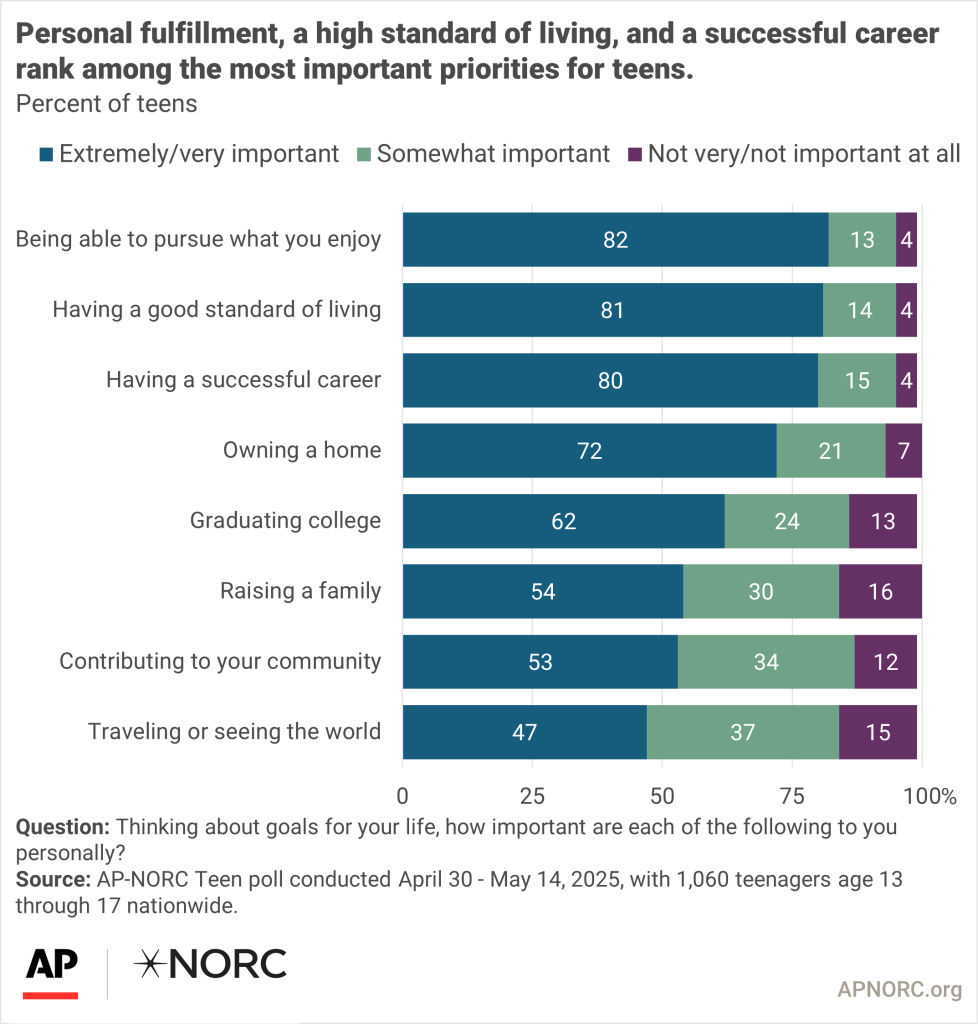
Teens whose parents have a college degree are more likely than those whose parents do not have a college degree to see many of these milestones as extremely or very important. When it comes to having a successful career and contributing to one’s community, teens place similar importance regardless of parental educational attainment.
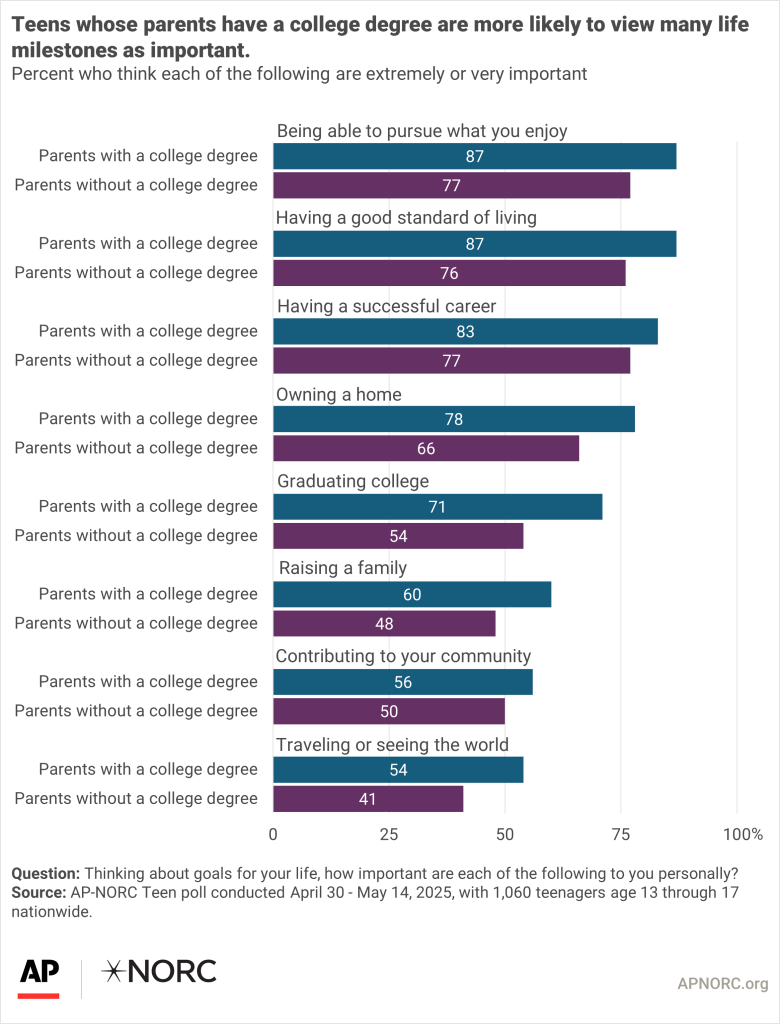
Some differences by gender also emerge. Teenage girls are more likely than teenage boys to view graduating college (70% vs. 54%), having a successful career (84% vs. 76%), contributing to their community (59% vs. 48%), and seeing the world (52% vs. 42%) as important.
According to a 2022 UChicago Harris/AP-NORC poll, adults and teens have similar priorities. Teens are as likely as adults to place a high importance on pursuing what they enjoy, having a high standard of living, owning a home, and traveling around the world.
Teens are more likely than adults to view having a successful career, graduating college, and contributing to their communities as important. However, adults are more likely than teens to place a high importance on raising a family.
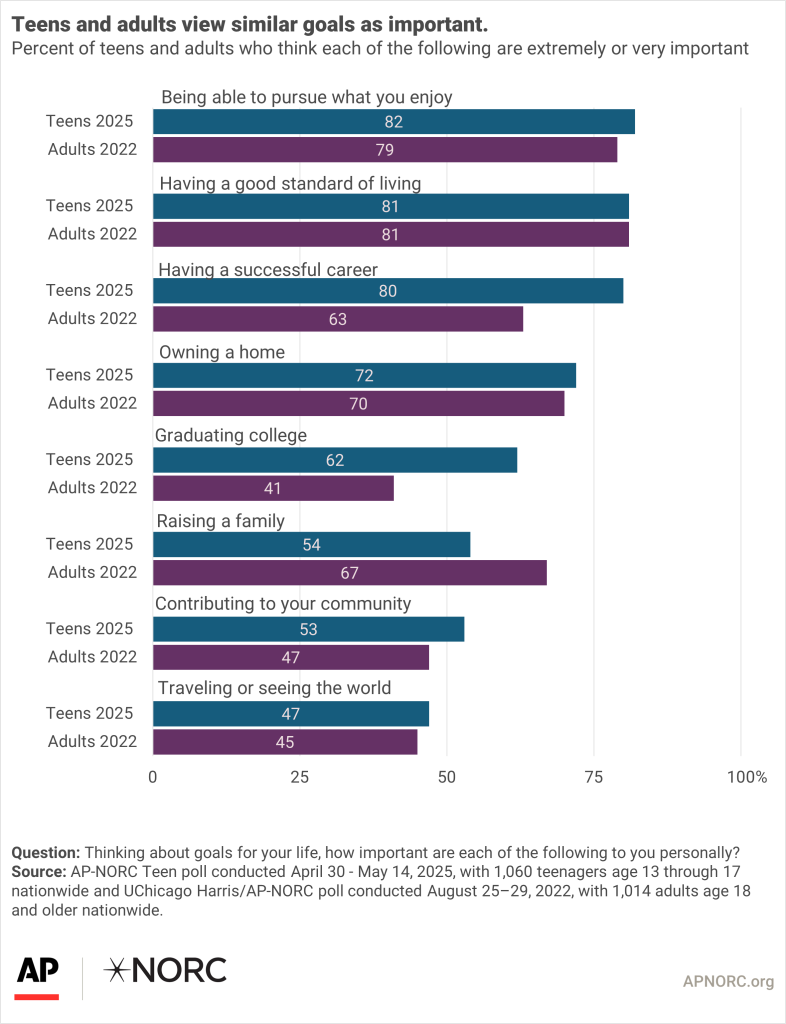
Although teens share the same goals as adults, many feel these goals are becoming harder to achieve. Compared to their parents’ generation, teens view home ownership as furthest out of reach, with 7 in 10 feeling that home ownership will be harder to achieve than it was for their parents. Half say raising a family, having a successful career, having a good standard of living, and seeing the world are increasingly difficult. There is no life goal asked about that most teens think will be easier to achieve than it was for their parents.
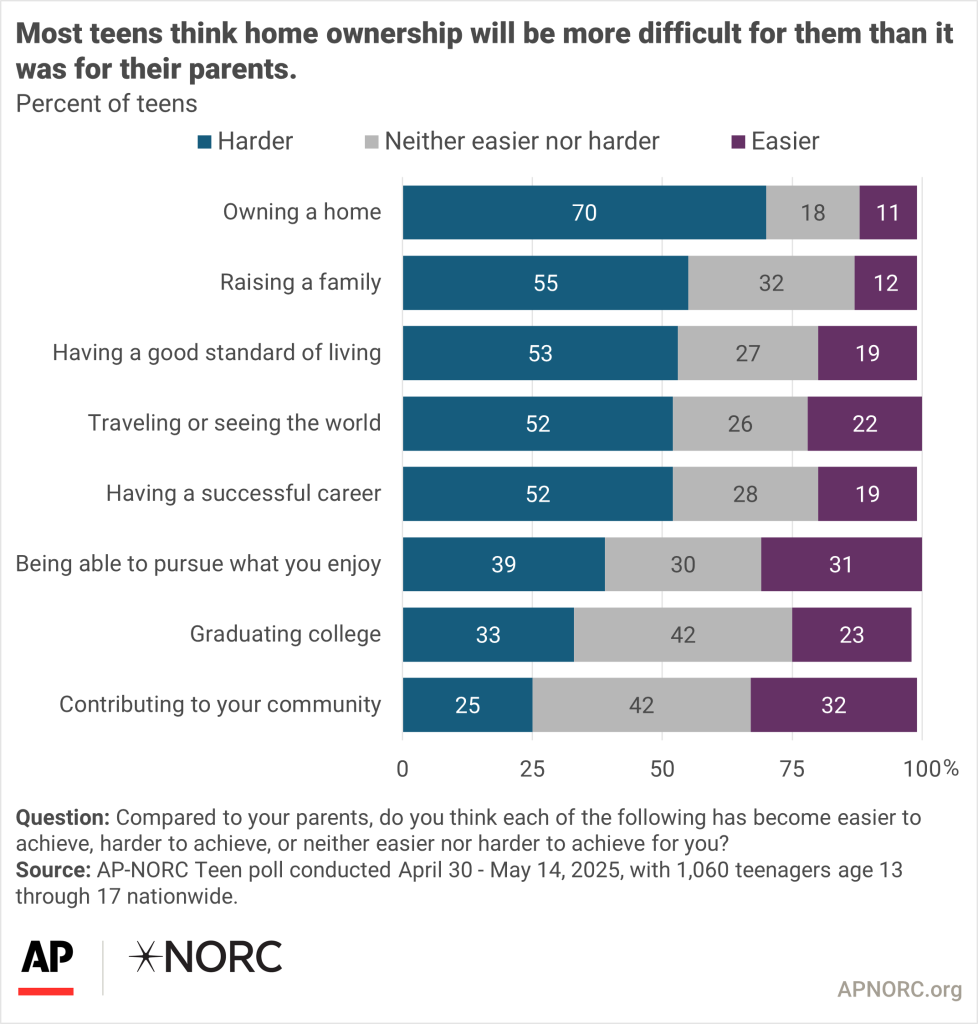
Many adults feel these milestones are becoming harder to achieve as well, though teens are more pessimistic. Teens are more likely than adults to say that owning a home, having a good standard of living, having a successful career, or traveling the world is harder than it was for previous generations.
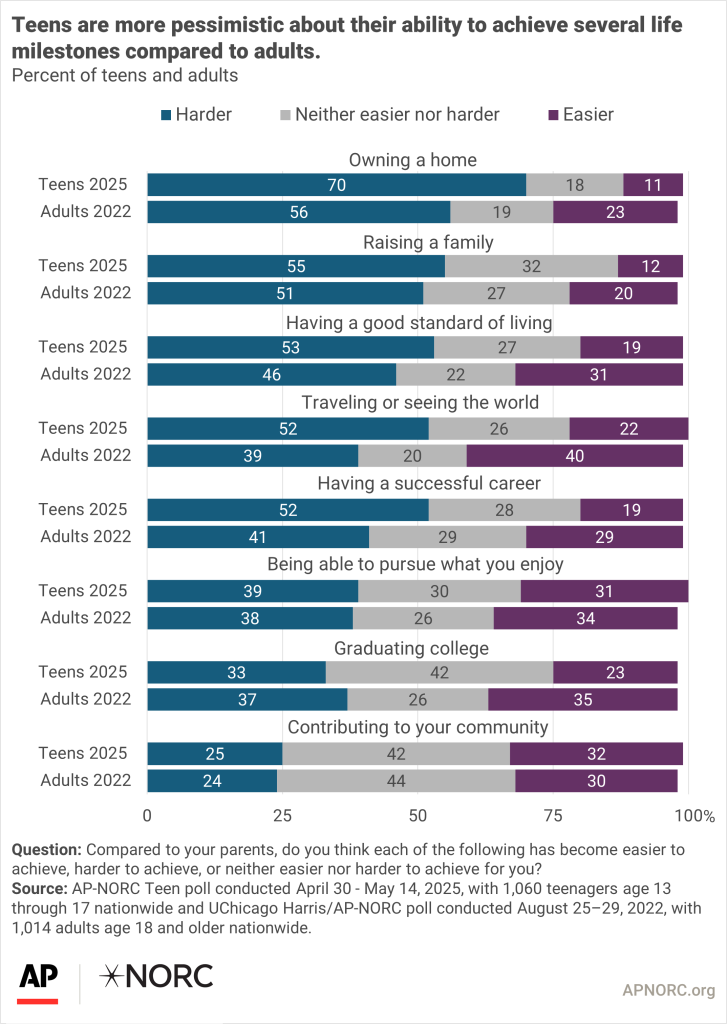
Although many teens think a good standard of living will be harder to achieve than it was for their parents, 51% think it’s very or somewhat likely they will have a better standard of living than their parents, while 49% say it’s very or somewhat unlikely.
In 2022, adults were more pessimistic about young people having a better standard of living than their parents. Forty-five percent of adults thought it was likely that young people would have a better standard of living and 54% said it was unlikely.
Many teens value a college degree. Seven in 10 think a college degree will be important for getting a job, and 6 in 10 say the same about learning necessary life skills. About half think completing college is important for becoming an informed member of society or forming their personal identity.
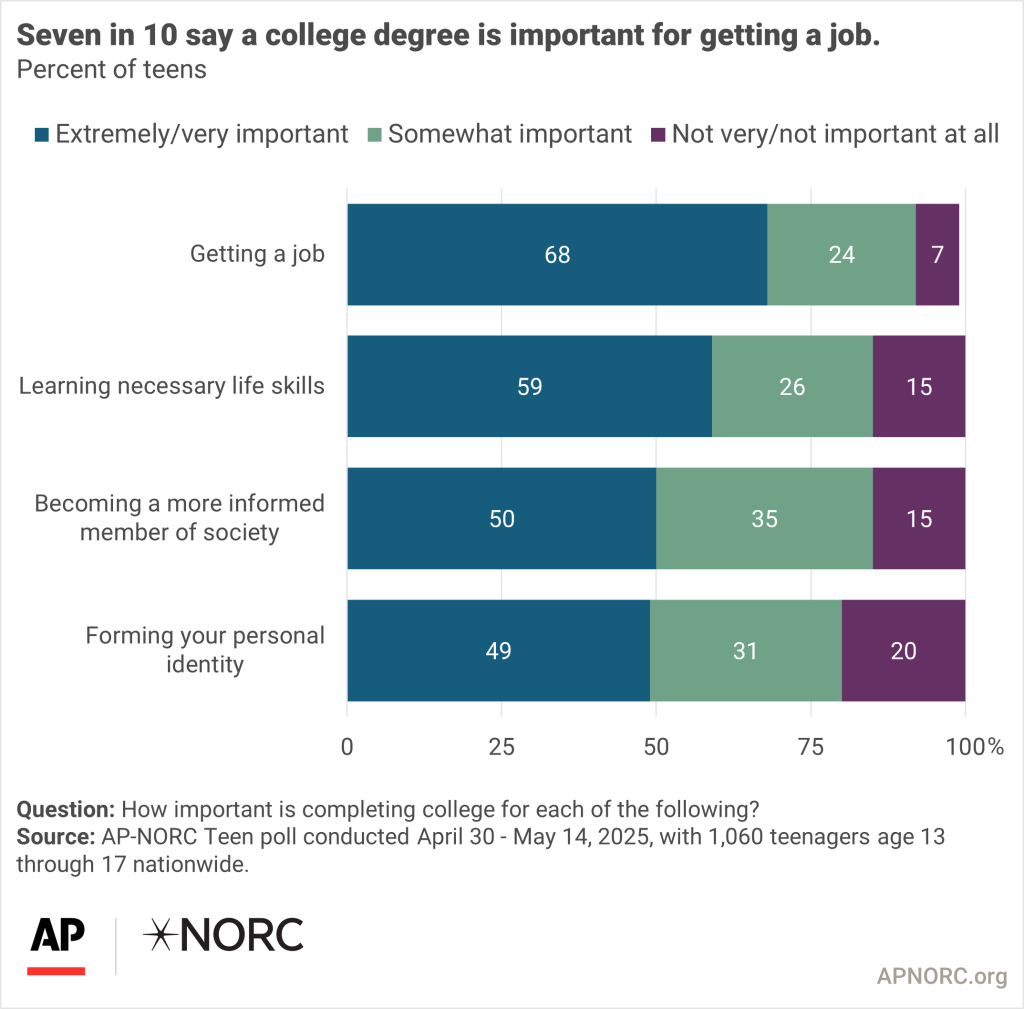
When evaluating the benefits of a college degree, parental educational attainment is significant. Teens whose parents have a college degree are more likely than teens whose parents are not college graduates to think completing college is important in order to get a good job or become a more educated member of society. Teens view college completion as similarly important for learning necessary life skills and forming their identities, regardless of their parent’s education attainment.
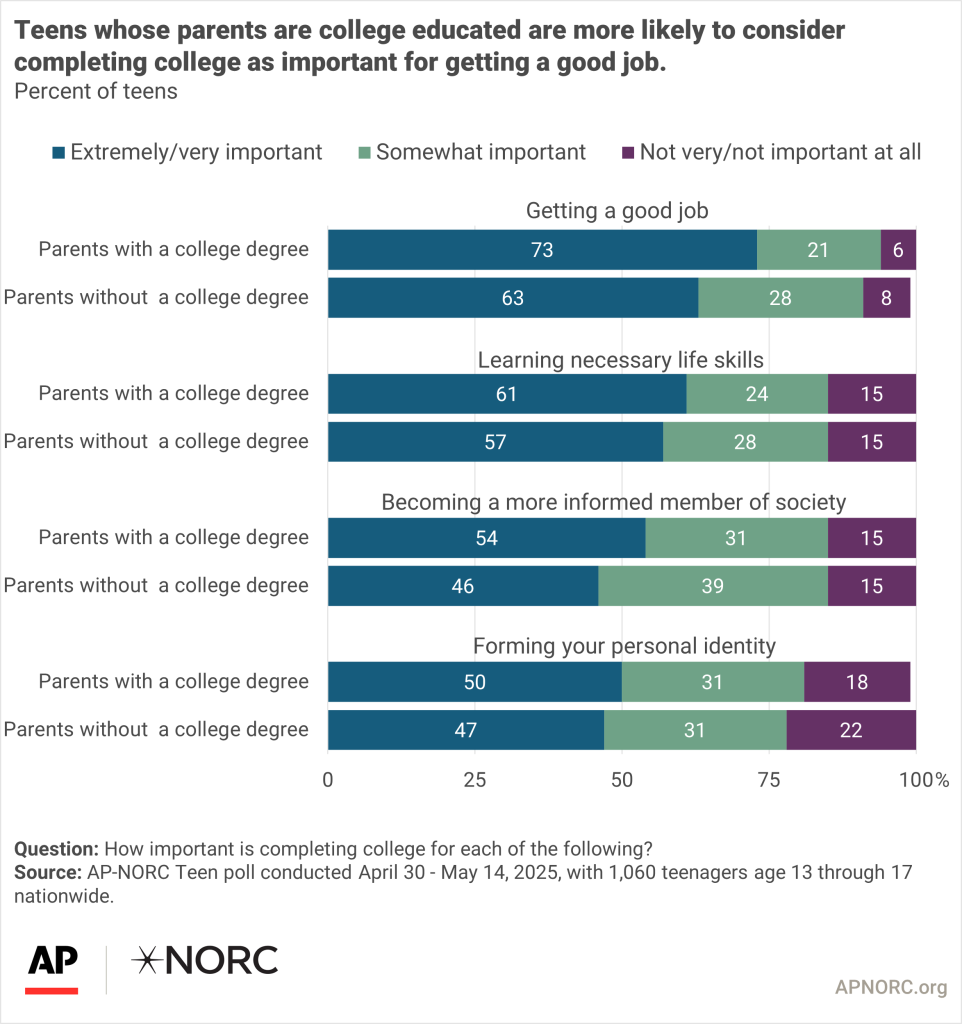
Politics is not a central focus for most teens. Only 17% follow politics closely and 39% follow it somewhat closely. Forty-four percent say they do not follow politics closely.
Still, the vast majority of teens think voting is important, but many think the country’s political system isn’t working well. Seventy-one percent of teens say it is extremely or very important for people to vote, and another 22% say it is somewhat important. Only 6% consider voting unimportant.
At the same time, nearly half (48%) think the country’s political system is not currently working well. Only 15% say the political system is working well with 34% thinking it is working somewhat well.
President Trump is viewed unfavorably among teens with half holding an unfavorable view while around one third view him positively. Four in 10 view Vice President JD Vance negatively while half as many hold a positive view of him. Many, 4 in 10, do not know enough about JD Vance to have an opinion.
Neither party has an edge among today’s teenagers. Thirty-nine percent have an unfavorable view of the Republican party and 34% feel the same about the Democratic party. Three in 10 teens don’t know enough about either party to have an opinion.
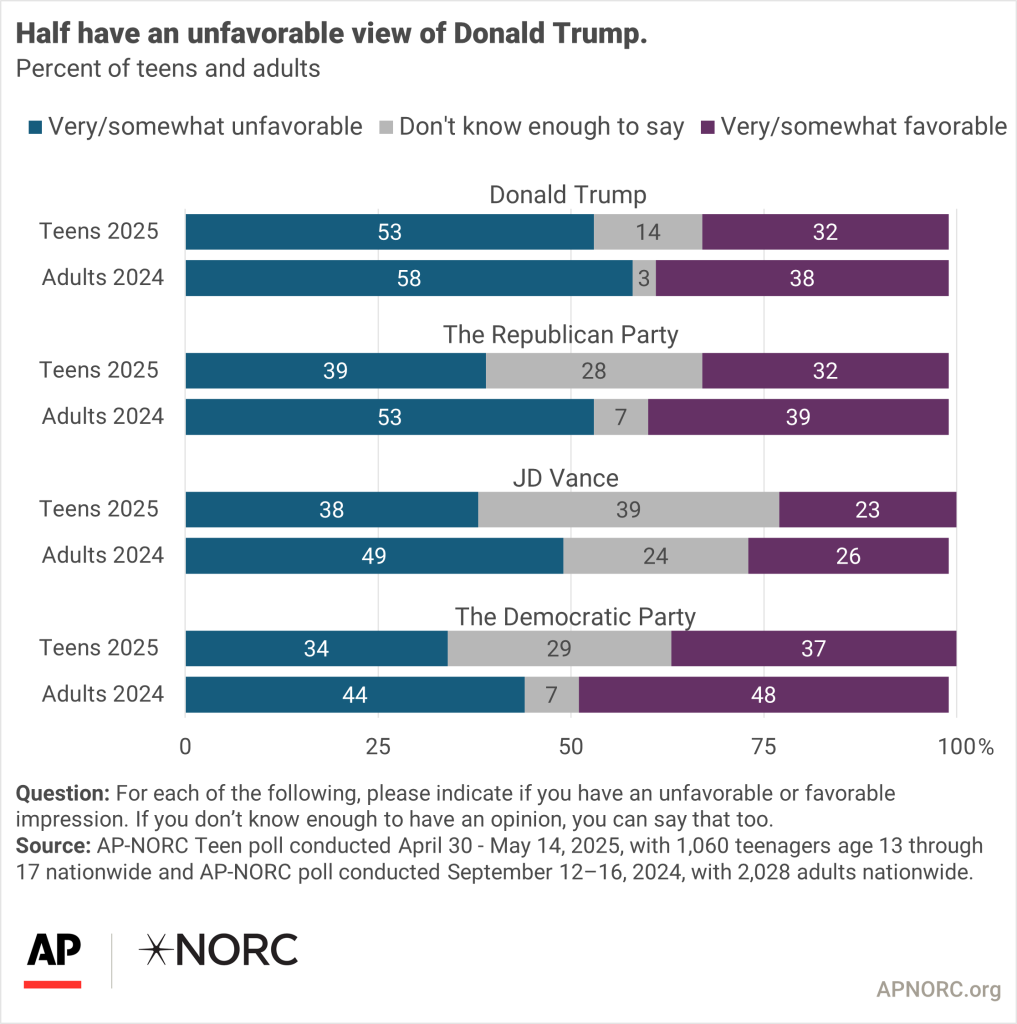
Teenage girls are more likely than teenage boys to view Trump unfavorably. Six in 10 teenage girls have a negative opinion of Trump compared with about half of teenage boys. Overall, 4 in 10 teens view Vance negatively, though girls are more likely than boys to say they don’t know enough about him to have an opinion. Boys are more likely than girls to feel favorable about Vance.
Similar shares of teen boys and girls view the Democratic party favorably, but boys are more likely than girls to have an unfavorable view of the Party. The Republican Party is viewed more favorably by boys than girls.
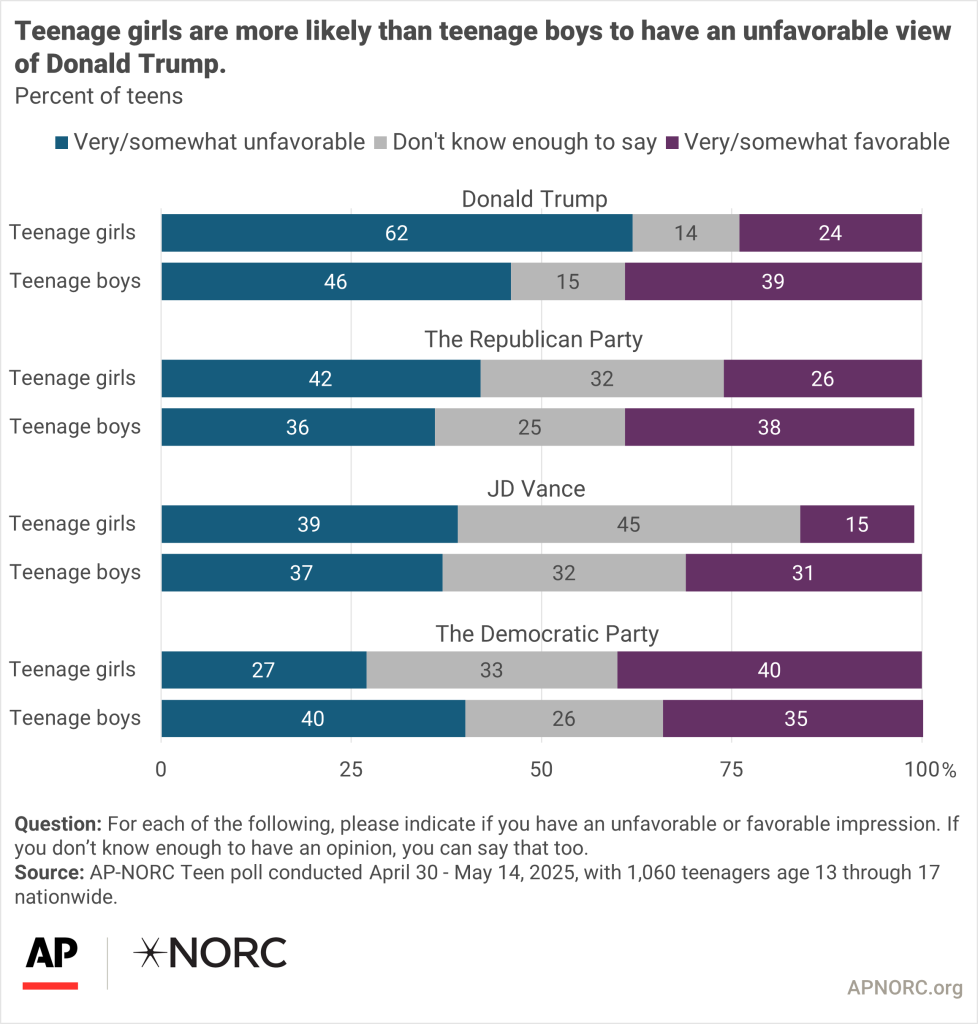
The nationwide poll was conducted April 30 – May 14, 2025, using the AmeriSpeak® Teen Panel, the probability-based panel of NORC at the University of Chicago, along with non-probability panel interviews from Prodege. Online interviews were conducted with 1,060 teenagers age 13-17. The overall margin of sampling error is +/- 4.2 percentage points.
- Suggested Citation: AP-NORC Center for Public Affairs Research. “Many teens want a good standard of living but feel it is becoming harder to achieve” (June 2025). https://apnorc.org/projects/many-teens-want-a-good-standard-of-living-but-feel-it-is-becoming-harder-to-achieve/






